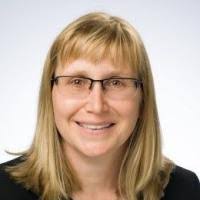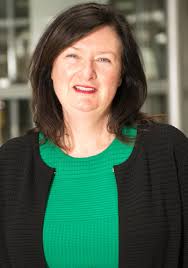Workshop: Microbiome Analysis with QIIME2
Registration now open!
Micromon (Monash MNHS), in conjunction with the EPHM Lab (Monash Engineering) and the School of Biological Sciences, would like to invite you to register for our upcoming three-day workshop and symposium. A half-day symposium will provide selected attendees with the opportunity to talk briefly about their work in a relaxed atmosphere with a combined question and discussion session. A half-day theory-only session will cover sample processing, DNA extraction, amplicon-based sequencing library construction, and Illumina next-generation sequencing and associated QC. The following two days will include a hands-on workshop covering, data analysis and best practices using the QIIME2 data analysis package, presented by contributing authors of the QIIME2 package. The workshop will be held in Monash University’s newest building, Learning and Teaching (https://www.monash.edu/lt-building#).
- Date: 14-16 November 2018
- Price: $350 (ex-GST) per person (includes lunch and two refreshment breaks each day)
- Location: Learning and Teaching Building (Room G31), 19 Ancora Imparo Way, Monash University, Wellington Road, Clayton
Visit the Micromon website for more information and for registration.
Email: scott.coutts@monash.edu
Phone: (03) 9905 8592
Microbial Ecology-Environmental Microbiology (MEEM) in Victoria
What: Microbial Ecology-Environmental Microbiology (MEEM) in Victoria (4 ECR speakers, 3 PhD speakers; afternoon tea, post meeting social event)
When: Thursday 27th September, 2018 from 14:00-17:15
Where: La Trobe city campus, 360 Collins Street , Melbourne (Room: 360C-2.10).
Why: Promote communication/collaboration for those interested in microbial ecology, environmental microbiology, evolutionary microbiology, and related disciplines
Sponsor: Australian Society for Microbiology
Organisers: Assoc Prof Ashley Franks (La Trobe); Dr Chris Greening (Monash); Prof Linda Blackall (Melbourne)
RSVP: Please email chris.greening@monash.edu by Friday 21st September if you are coming
Cost: nil
Timetable
2:00 pm: Intro and Aims – Microbial Ecology-Environmental Microbiology in Victoria
2:10 pm: Dr Jennifer Wood (La Trobe University / Swinburne University of Technology) – Trait-based predictions of microbial community assembly and function
2:35 pm: Heyu Lin (School of Earth Sciences, University of Melbourne) – Investigating the potential for mercury methylation by marine microaerophilic bacteria (tentative title)
2:50 pm: Nagalakshmi Haleyur (Department of Biotechnology and Environmental Biology, RMIT University) – Bioremediation of oil-contaminated soils (tentative title)
3:05 pm: Dr Eleonora Chiri (School of Biological Sciences, Monash University) – Microbial methane oxidation across six orders of magnitude
3 30 pm: Afternoon tea – Sponsored by Australian Society for Microbiology VIC Branch
4:00 pm: Dr Matt Neave (CSIRO Australian Animal Health Laboratory) – Diversity, global distribution and genetic potential of prevalent symbiotic marine bacteria in the genus Endozoicomonas
4:25 pm: Ashley Dungan (School of BioSciences, University of Melbourne) – The anemone Exaiptasia pallida as a model to explore probiotics for climate resilience in corals
4:40 pm: Dr Rebekah Henry (School of Civil Engineering, Monash University) – Who’s Poo? Application of microbial community data for understanding faecal contamination in recreational water
5:05 pm: Discussion on MEEM communication
5:15 pm: Drinks – Go to local bar afterwards
 EMRI member and Head of the School of BioSciences Prof Ute Roessner will deliver the School of BioSciences Visions Seminar Imaging mass spectrometry – where are metabolites located? on Tuesday 11th September, 12noon-1pm, Turner Theatre, BioSciences 2 Building.
EMRI member and Head of the School of BioSciences Prof Ute Roessner will deliver the School of BioSciences Visions Seminar Imaging mass spectrometry – where are metabolites located? on Tuesday 11th September, 12noon-1pm, Turner Theatre, BioSciences 2 Building.
A reminder that registration is open for the Biological Optical Microscopy Platform Imaging and Modelling of Cellular Life Symposium.
This symposium will highlight research that uses high-end imaging, quantitative image analysis and mathematical modelling methods.
- 1-5pm, Friday 14th September
- Peter Doherty Institute Auditorium, The University of Melbourne
- Registration: Free and open to all. Please register here.
We have now completed the program and the speaker list and titles can be found below. Our plenary address will be given by Prof. Mark Ellisman (UCSD). If anyone would like to meet with Prof Ellisman, please email Vijay Rajagopal (vijay.rajagopal@unimelb.edu.au).
| Time |
Presenter |
Title |
| 1:00 |
Leann Tilley |
CryoEM: Imaging the conformational dynamics of the malaria parasite proteasome |
| 1:25 |
Staffan Persson |
Quantitative analyses of the actin cytoskeleton in plant cells |
| 1:50 |
Kathryn Stok |
Multiscale imaging of musculoskeletal mechanobiology |
| 2:15 |
Vijay Rajagopal |
The cardiomyocyte under the mathematical microscope |
| 2:40 |
Afternoon tea |
| 3:10 |
Puxue Qiao |
A spatio-temporal model and inference tools for longitudinal count data on multicolour cell growth |
| 3:35 |
Janet Keast |
Mapping the visceral connectome |
| 4:00 |
Mark Ellisman |
Revealing Secrets Hiding in Plain Sight: Recent Advances in Multi-scale Multi-modal Imaging |
Paul McMillan | Manager, Biological Optical Microscopy Platform
Faculty of Medicine, Dentistry & Health Sciences
Room N803, Medical Building,
The University of Melbourne, Victoria 3010 Australia
T: +61 3 9035 3021 M: +61 400 975 760 E: paul.mcmillan@unimelb.edu.au
www.microscopy.unimelb.edu.au | facebook | twitter
Introduction to R Workshops

Tuesday Sept 11th and Thursday Sept 13th 9:00am-5:00pm
Learn how to use R for data manipulation, analysis and visualisation.
R is commonly used in many scientific disciplines for statistical analysis and its array of third-party packages. The emphasis of this one-day workshop is to give attendees a strong foundation in the fundamentals of R. No previous knowledge is required.
Careers in Computational Biology run by Computational Biology Research Initiative on Monday 17th September. RSVP essential!
Australian Bioinformatics and Computational Biology Society meeting 26-30 November, 2018, at University of Melbourne. COMBINE Student Symposium 26 November, 2018; ABACBS conference 27-28 November; associated workshops 29-30 November, 2018. Key dates: 10 September; Abstracts and travel bursary applications close. Early October: Notification of talk/poster. 24 October: Early bird registration deadline.
Details:

What: Melbourne RNA-Seq Workshop
Date: 26th-27th September
Registration closes: 5 pm, 19th September
Venue: Seminar Room 2, WEHI (1G Royal Parade, Parkville VIC 3051, Australia)
Registration: www.abacbs.org/rnaseq-analysis-in-r#!event-register/2018/9/26/rna-seq-analysis-in-r
Course materials: combine-australia.github.io/2018-09-26-RNAseq-Melbourne/
The COMBINE Melbourne Team are offering a two-day Introduction to RNA-seq workshop on 26th-27th September in Melbourne.
In this workshop, you will be learning how to analyse RNA-seq count data, using R. This will include reading the data into R, quality control and performing differential expression analysis and gene set testing, with a focus on the limma-voom analysis workflow. You will learn how to generate common plots for analysis and visualisation of gene expression data, such as boxplots and heatmaps. This workshop is aimed at biologists interested in learning how to perform differential expression analysis of RNA-seq data when reference genomes are available.
Catering will be provided. Please bring along your laptop, charged if possible, as there are limited power boards! Any enquiries please contact Holly Whitfield (whitfieldh@student.unimelb.edu.au)
Prerequisites:
- Some basic R knowledge is assumed. If you are not familiar with the R statistical programming language we strongly encourage you to work through an introductory R course before attempting these materials. We recommend the Software Carpentry R for Reproducible Scientific Analysis lessons up to and including vectorisation.
- Please bring your own laptop with pre-installed R and RStudio.
Prerequisites:
- Some basic R knowledge is assumed. If you are not familiar with the R statistical programming language we strongly encourage you to work through an introductory R course before attempting these materials. We recommend the Software Carpentry R for Reproducible Scientific Analysis lessons up to and including vectorisation.
- Please bring your own laptop with pre-installed R and RStudio.
Registrations are now available here!
 Prof Karen Day (Dean of the Faculty of Science) awarded the title of Redmond Barry Distinguished Professor for her outstanding leadership within the University’s professoriate.
Prof Karen Day (Dean of the Faculty of Science) awarded the title of Redmond Barry Distinguished Professor for her outstanding leadership within the University’s professoriate.
EMRI member Kim-Anh Lê Cao wins prestigious 2019-2022 Career Development Fellowship (CDF2) from the National Health and Medical Research Council (NHMRC) ‘Microbiome biomarkers of human disease: novel computational methods to facilitate therapeutic developments’, $483K.
Kim-Anh Lê Cao wins prestigious 2019-2022 Career Development Fellowship (CDF2) from the National Health and Medical Research Council (NHMRC) ‘Microbiome biomarkers of human disease: novel computational methods to facilitate therapeutic developments’, $483K.
This new CDF2 follows on from Kim-Anh’s previous 2015-2019 NHMRC Career Development Fellowship (CDF1) on ‘Development of statistical methodologies and application to clinical cancer studies’




